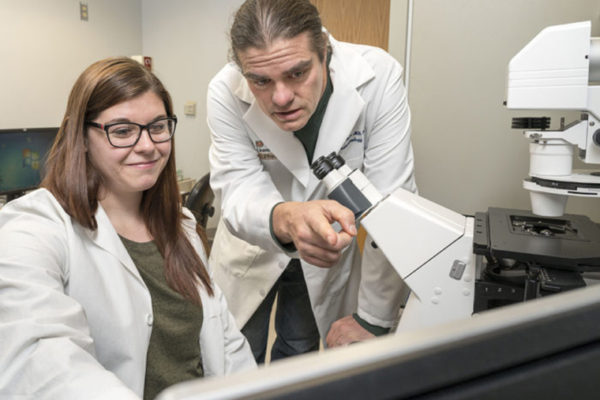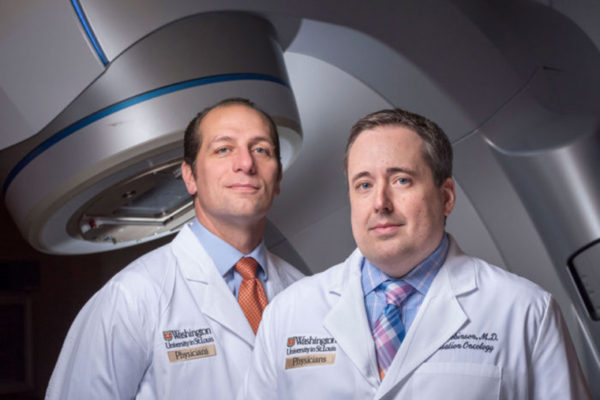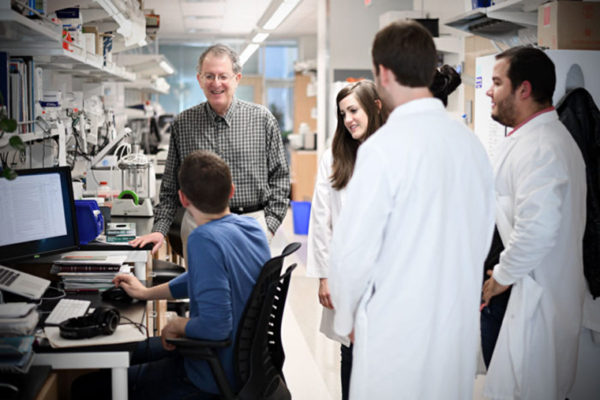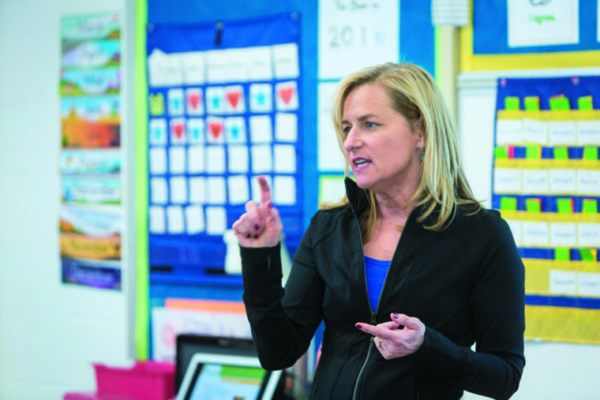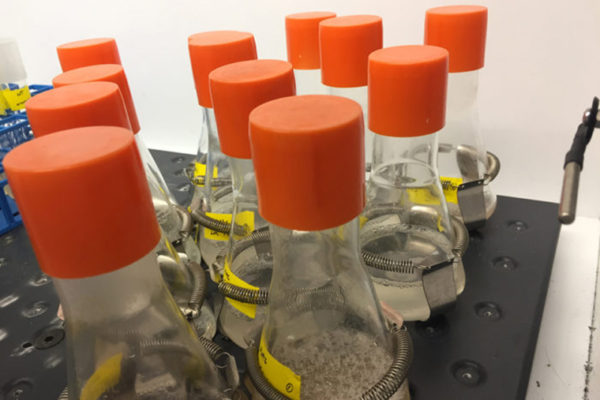Dutcher named cell biology society fellow
Susan Dutcher, a professor of genetics and the interim director of The McDonnell Genome Institute at Washington University School of Medicine in St. Louis, has been named a 2017 fellow of the American Society for Cell Biology (ASCB).
Lack of sleep boosts levels of Alzheimer’s proteins
Chronic poor sleep has been linked to cognitive decline. A new study from the School of Medicine shows that a sleepless night causes levels of the Alzheimer’s protein amyloid beta to rise faster than the brain’s waste-disposal system can remove it. Persistently high levels of the protein can set off a cascade of brain changes leading to dementia.
Study prompts new ideas on cancers’ origins
A new study from the School of Medicine reveals that although many cancer therapies target rapidly dividing stem cells, mature cells also seem to play a key role in initiating cancer, at least in forming precancerous lesions.
Medicine’s Art Show accepting works
The School of Medicine’s spring Art Show is now accepting submissions of artwork (paintings, sculpture, photography and more). Submissions are due by Jan. 12. The show will be held Jan. 16-Feb. 9 at the Farrell Learning and Teaching Center.
Volunteers sought for Memory & Aging Project
The Memory & Aging Project (MAP) is an ongoing research study at Washington University. Researchers are looking at the memory and thinking changes that occur as people age. Both healthy individuals and those with memory loss are sought to take part in tests that measure memory and thinking.
Deadly heart rhythm halted by noninvasive radiation therapy
Radiation therapy often is used to treat cancer patients. Now, School of Medicine doctors have shown that radiation therapy — aimed directly at the heart — can be used to treat patients with a life-threatening heart rhythm.
Gordon receives Sanofi-Institut Pasteur Award
The School of Medicine’s Jeffrey I. Gordon, MD, has received the Sanofi-Institut Pasteur International Award for his role in founding and leading the field of gut microbiome research. The award recognizes scientists who have made outstanding contributions to biomedical research in fields that profoundly affect global public health.
A key to tackling childhood obesity: Involve families and follow up
When trying to help children lose weight, involving a parent in the treatment makes the entire family healthier, researchers at the School of Medicine have shown.
Fisher named Siteman executive director of research, business administration
Nick Fisher, an administration expert who has 14 years of experience with academic clinical research and cancer center operations, has been named executive director of research and business administration at Siteman Cancer Center at Barnes-Jewish Hospital and Washington University School of Medicine.
$3.9 million supports research to turn bacteria into biofuel producers
Researchers at Washington University in St. Louis have received a $3.9 million grant from the Department of Energy (DOE) to develop bacteria that manufacture renewable biofuels — energy sources made from plants or microbes.
View More Stories


